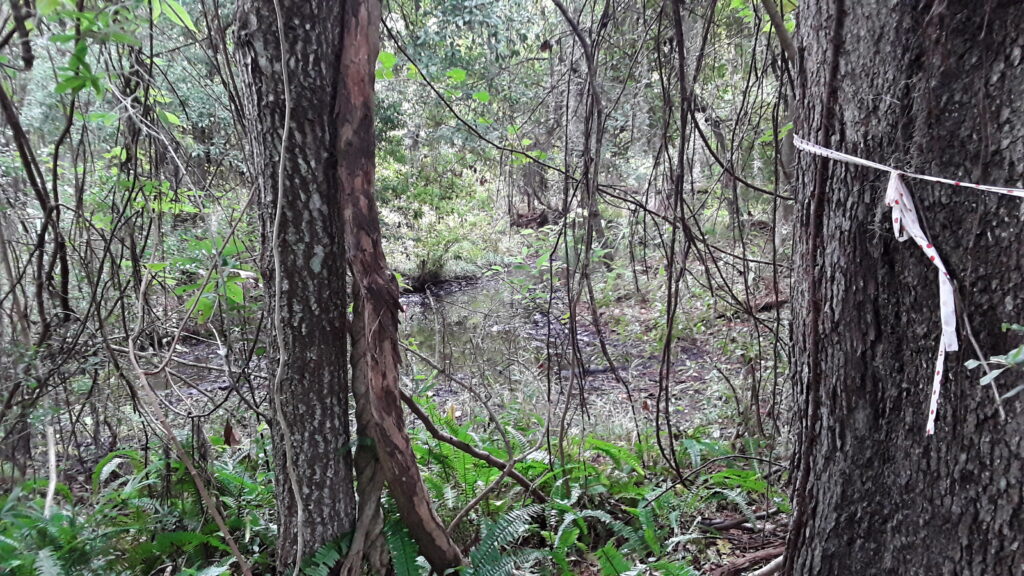
In issuing permits for projects that disturb or alter the Waters of the United States, the Army Corps of Engineers plays a key role in protecting the nation's water under the federal Clean Water Act.
But the Corps repeatedly fails to fulfill its legal obligations to enforce regulations.
The Clean Water Act's [CWA] purpose is to restore the waters of the country – rivers, streams, and – to a lesser extent – wetlands. Defining those waters subject to regulations known by the term "Waters of the United States" (WOTUS) has been controversial. Due to the water-quality benefits of wetlands, there's been growing support for expanding the WOTUS definition to include more wetlands than previously recognized under the law. Under the CWA, the Corps regulates the disturbance and filling of wetlands that are defined under WOTUS.
Unfortunately, agricultural and land development interests have reinvigorated and funded resistance to expanding the regulated area under the CWA. In some cases and in some districts, this political resistance appears to be influencing both Corps permitting and subsequent court decisions, weakening protections of vital public resources and quality of life.
Certain kinds of projects are eligible for permits that are less thorough than requirements for others. For instance, government-funded road projects are eligible for a "regional general permit' [RGP] that can be issued without public review or environmental assessment. Likewise, individual docks that serve a single residential lot are eligible for a "programmatic general permit" [PGP], if they are not located within, or too close to, historic districts, national parks, or other features having special public purposes. A recurring problem is the Corps' failure to conform to the eligibility requirements for these RGPs and PGPs. This inappropriate issuance of special expedited permits removes safeguards provided by regular permitting, such as a public hearing and environmental review.
The Center has filed two lawsuits to correct the Corps' failure to meet its regulatory obligations under the Clean Water Act. These cases epitomize the adverse consequences and the Corps' repeated lack of compliance with regulatory rules.
The Center filed a complaint against the Corps for approving a private residential dock on Cumberland Island without public notice. In 1972, Congress designated the island a "National Seashore" with the intention to preserve and restore its "primitive natural condition". Yet, the Corps justified the dock approval without public notice with the spurious claim that there would be "no public opposition." And even though Congress directed that Cumberland Island "shall be permanently preserved in its primitive state" except for areas especially adaptable for public recreation, the Corps failed to consider this law before approving the private dock within the National Seashore. As a result, questions about the justification and need for the dock remain unanswered.
The case is still unresolved, and several motions are still under consideration.
The Center filed another complaint challenging an RGP for a project in Glynn County along a scenic corridor of Frederica Road adjacent to historic Christ Church. The State Historic Preservation Office has declared that both that segment of the road and the church property are eligible for listing as a historic district on the National Register of Historic Places.
The permit is for the "realignment" of about 1700 feet of Frederica Road, which entails moving the road further east and away from the church, destroying about three-quarters of an acre of freshwater wetlands. The project is not a public project because the church is paying almost the entire cost. Without being a public project, it is not eligible for the RGP, which applies only to government-funded transportation projects.
The project is part of Christ Church's master plan, which alleges safety concerns with the current road. However, the public record does not substantiate that claim, nor has the church or Glynn County ever performed a traffic study to examine the alleged problem.
Other legal issues are troubling, including the violation of Article I of the Constitution, which forbids the use of public funds to support a religious organization. Georgia's constitution has similar prohibitions. Glynn County granted a substantial financial benefit to Christ Church by swapping the land where the current road sits for the church-owned wetland for the new road right-of-way, which is appraised at a much lower market value.
The public has never had an opportunity to properly evaluate public interests, such as the area's scenic corridor, drainage, and natural habitat. Not only are wetlands at risk, but there is evidence of emerging tidal wetlands in the project area, advanced by rising sea-level that climate scientists predict to be accelerating.
Citizens deserve the assurance that legally obligated authorities consistently enforce laws. Accordingly, the Center strives to increase public awareness and understanding about the frequency of such enforcement failures and their consequences. In pursuit of our mission, the Center is taking timely action, including litigation, to correct this and other violations of required safeguards, which are intended to protect public health and safety, as well as the environment.
ADDENDUM:
Aside from the chronic problem of Corps' enforcement deficiencies, the practice of "mitigating" the destruction of wetlands is inducing a tendency for courts to ignore or rationalize the damages caused by such activities when they actually deserve closer scrutiny. Mitigation allows projects to move forward if those promoting it provide 'credits' gained by creating or purchasing "wetland banks" at other locations.
In many cases, wetlands destroyed or damaged by projects have unique and vital local benefits that distantly located "wetland banks" cannot replace. Unfortunately, court decisions involving the protection of wetlands and public interest frequently disregard or marginalize such critical distinctions. The cumulative effect is a slow but dangerously expanding loss of wetlands, particularly in the Southeast. Such losses are especially troubling when sea-level rise and intensified storms make the location-specific flood-buffering functions of wetlands more crucial than ever.

